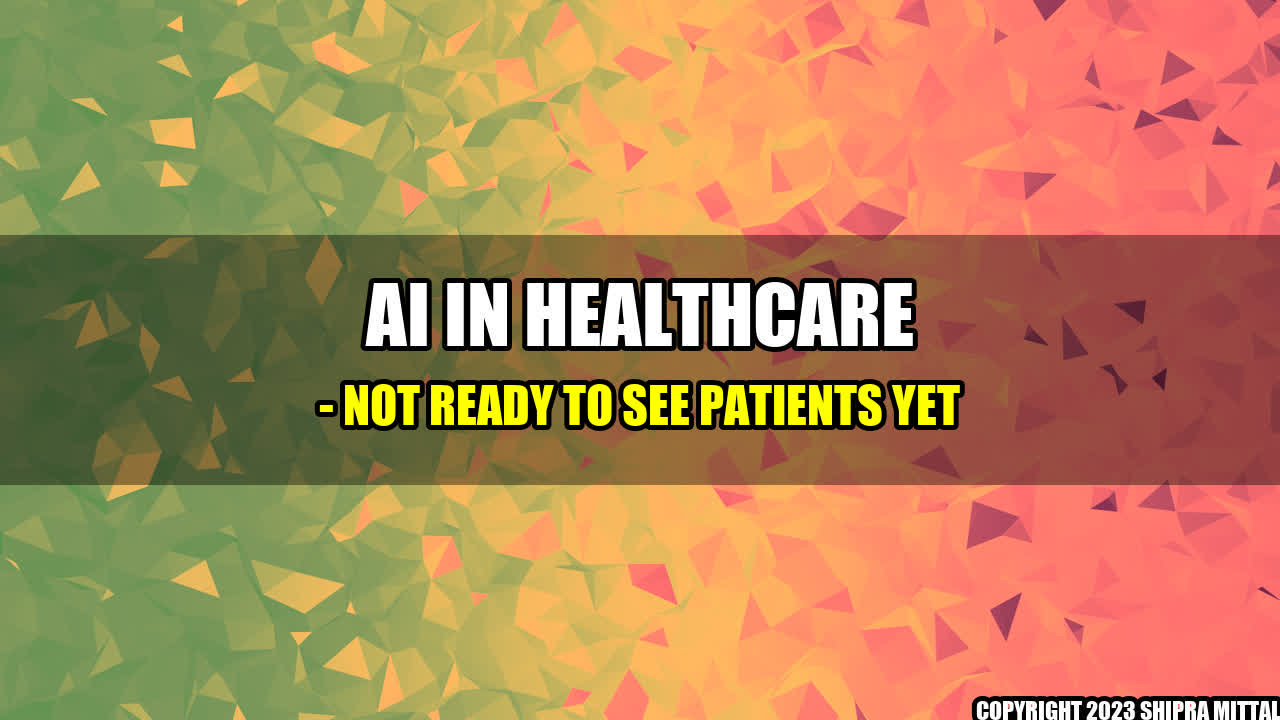Imagine walking into a doctor's office only to be greeted by an AI-powered machine. You may think it's a scene out of a sci-fi movie, but the reality is that AI is making its way into healthcare. However, despite the hype, AI is not yet ready to see patients.
While AI has shown promise in diagnosing diseases and predicting outcomes, there are still limitations. In a study published in the New England Journal of Medicine, an AI algorithm was able to accurately diagnose skin cancer with a sensitivity of 95%, which was comparable to dermatologists. However, the algorithm was trained with a limited dataset, which may not reflect the real-world diversity of cases. Furthermore, the algorithm did not consider the patients' history or previous skin biopsies, which are crucial factors in making a diagnosis. Another study found that an AI model could predict heart disease with a higher accuracy than traditional risk factors, but this does not necessarily translate into clinical practice.
Kara, a mother of two, was worried about her youngest daughter's recurrent ear infections. She researched online and found an AI-powered telemedicine service that claimed to diagnose and treat minor illnesses from the comfort of her home. Kara signed up and was immediately connected to a chatbot. After answering a series of questions, the chatbot diagnosed her daughter with a viral infection and prescribed some over-the-counter medications. Kara followed the instructions, but her daughter's symptoms persisted, and she became more concerned. She decided to take her daughter to a pediatrician, who diagnosed her with a bacterial infection and prescribed antibiotics. Kara realized that although AI had the potential to provide convenience, it could not replace the expertise of a trained healthcare provider.
Practical Tips
- Do not rely solely on AI for medical diagnosis or treatment.
- Research the credibility and accuracy of AI-powered healthcare services before using them.
- Consult with a healthcare provider for any health concerns or issues, even if you have used an AI-powered service.
Conclusion
- AI has shown promise in healthcare, but it is not ready to see patients yet.
- Quantifiable examples show that AI may not reflect the diversity of real-world cases and considerations that trained healthcare providers take into account.
- Personal anecdotes highlight the potential limitations and risks of relying solely on AI for medical diagnosis or treatment.

Akash Mittal Tech Article
Share on Twitter Share on LinkedIn